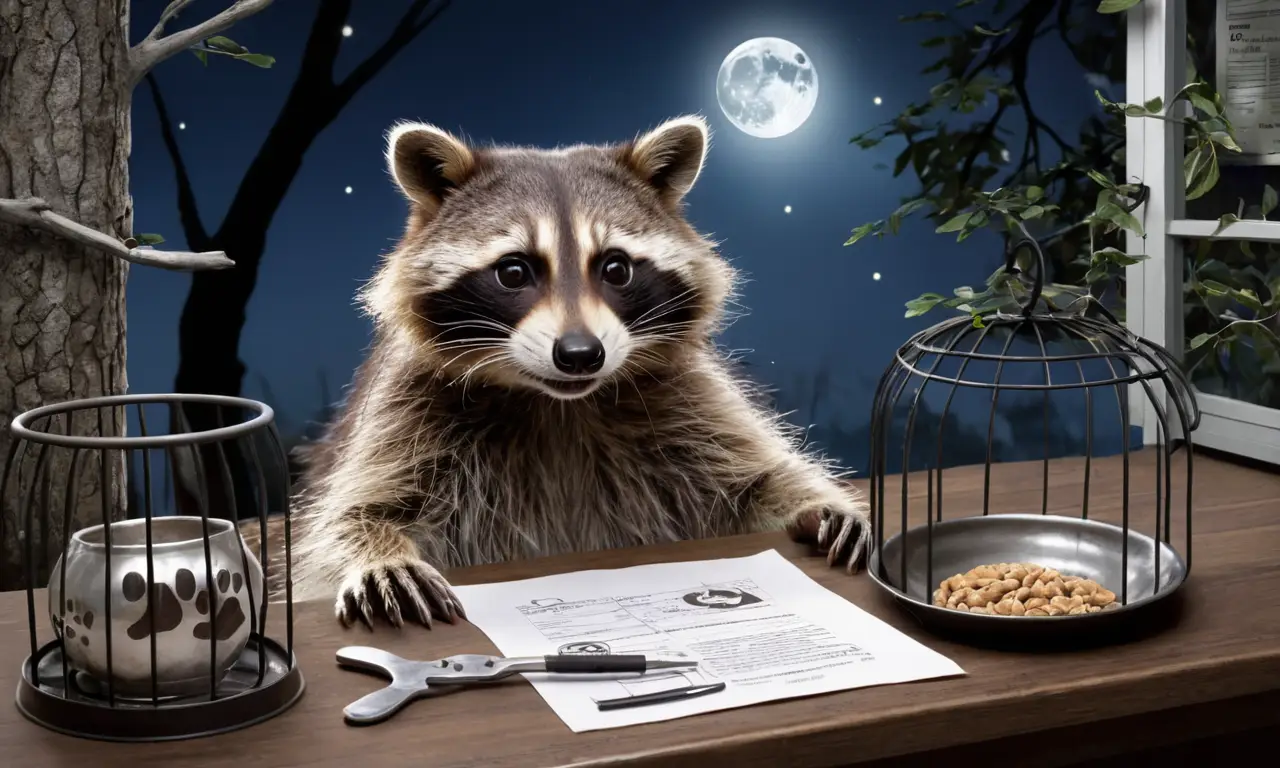Raccoons are undeniably cute and charismatic creatures, often captivating our attention with their masked faces and nimble paws. However, the allure of having a raccoon as a pet shouldn’t overshadow the significant responsibilities involved. Owning an exotic animal like a raccoon requires thorough research, careful planning, and a genuine commitment to meeting its unique needs. This article will delve into the legal aspects of raccoon ownership, essential care considerations, and the importance of enrichment and training for these intelligent animals.
This comprehensive guide aims to equip potential raccoon owners with the knowledge necessary to make an informed decision about welcoming one into their lives. We’ll explore the legal framework surrounding raccoon ownership, outline the specific requirements for providing proper care, and emphasize the crucial role of enrichment and training in ensuring a happy and healthy life for your raccoon companion.
Raccoon as a Pet
Raccoons are wild animals with instincts deeply rooted in their natural behaviors. While they can be affectionate and playful, they also possess strong survival instincts that may manifest in unexpected ways. Their intelligence and curiosity often lead them to explore and investigate their surroundings, which can sometimes result in destructive behavior if not properly managed.
Raccoons are nocturnal creatures, meaning they are most active at night. This can present challenges for owners who prefer a quieter household during the evening hours. Their natural foraging habits also mean they require a varied diet that includes both commercial raccoon food and fresh fruits, vegetables, and insects.
It’s important to remember that raccoons are not domesticated animals like cats or dogs. They retain many of their wild instincts and behaviors, which can make them challenging pets for inexperienced owners.
Legal Considerations for Raccoons

Before considering how can i get a raccoon as a pet, it’s crucial to understand the legal landscape surrounding raccoon ownership in your area. Laws regarding exotic pet ownership vary significantly from state to state and even within municipalities. Some jurisdictions may outright prohibit raccoon ownership, while others may require permits or licenses.
It’s essential to contact your local animal control agency or wildlife department to inquire about specific regulations in your region. Failure to comply with local laws can result in hefty fines, confiscation of the animal, or even legal action. Additionally, homeowner’s insurance policies may not cover exotic pets, so it’s important to check with your provider to ensure adequate coverage.
Caring for a Raccoon
Providing proper care for a raccoon involves meeting its physical and psychological needs. A spacious enclosure is essential, allowing ample room for movement, climbing, and exploration. The enclosure should be well-ventilated, secure, and equipped with appropriate bedding materials.
Raccoons are omnivores and require a balanced diet consisting of commercial raccoon food, fresh fruits, vegetables, insects, and occasional meat. Fresh water should always be available. Regular cleaning of the enclosure is crucial to maintain hygiene and prevent the spread of diseases.
Enrichment and Training

Raccoons are highly intelligent creatures that thrive on mental stimulation. Providing enrichment activities is essential for their well-being and can help prevent boredom and destructive behavior. Puzzle feeders, foraging toys, climbing structures, and interactive games can keep raccoons engaged and entertained.
Training a raccoon can be challenging but rewarding. They are capable of learning basic commands and tricks through positive reinforcement techniques. Consistency, patience, and high-value rewards are key to successful training. Socialization is also important for raccoons, as they are naturally social animals.
Veterinary Care
Raccoons require regular veterinary checkups just like any other pet. Finding a veterinarian experienced in treating exotic animals is crucial. Routine vaccinations, parasite control, and dental care are essential for maintaining their health.
It’s important to be aware of common health issues that can affect raccoons, such as respiratory infections, parasites, and nutritional deficiencies. Early detection and treatment are vital for ensuring their well-being.
Conclusion
Owning a raccoon is a significant commitment that requires careful consideration and responsible pet ownership. While they can be fascinating companions, their wild instincts and unique needs necessitate thorough research, legal compliance, and dedicated care. By understanding the legal framework surrounding raccoon ownership, providing proper housing and nutrition, enriching their environment, training them effectively, and ensuring regular veterinary care, you can create a safe and fulfilling life for your raccoon companion.

